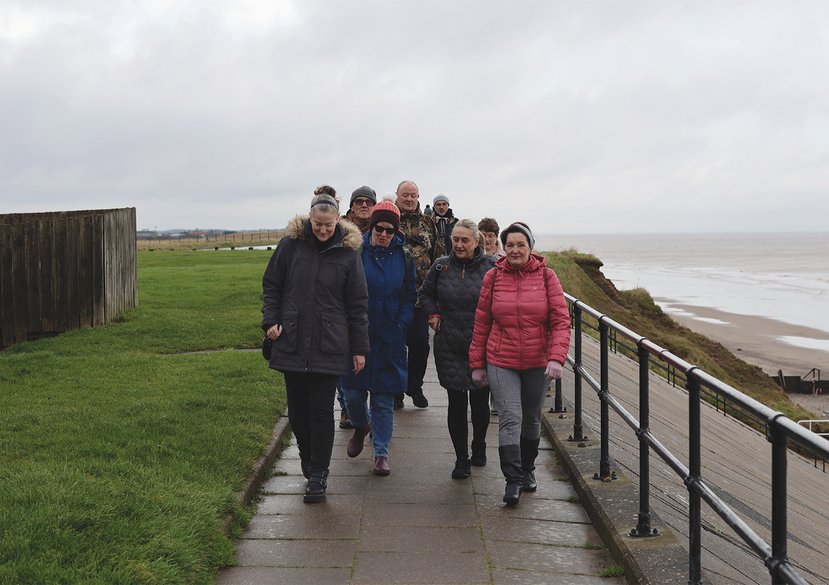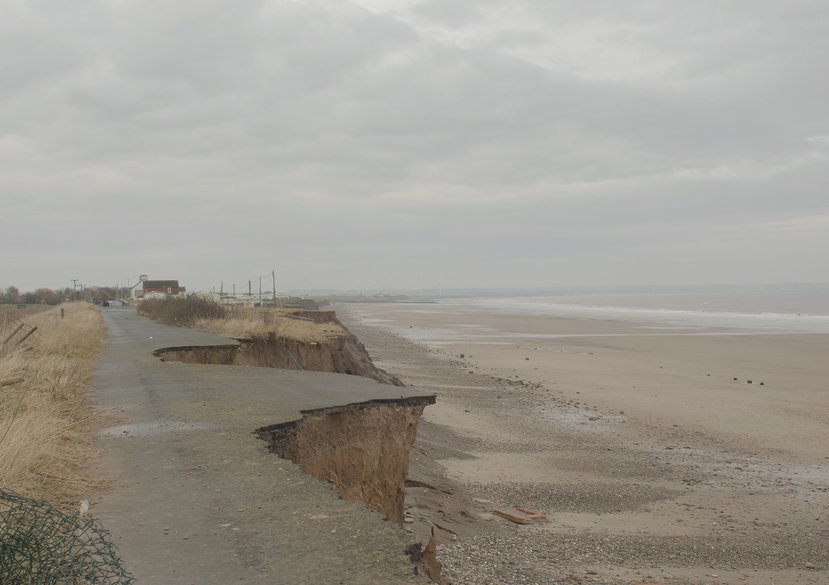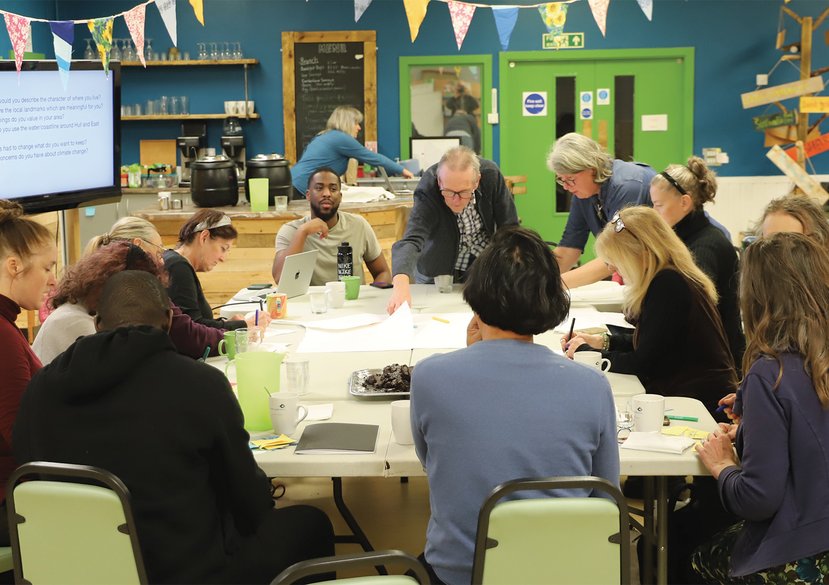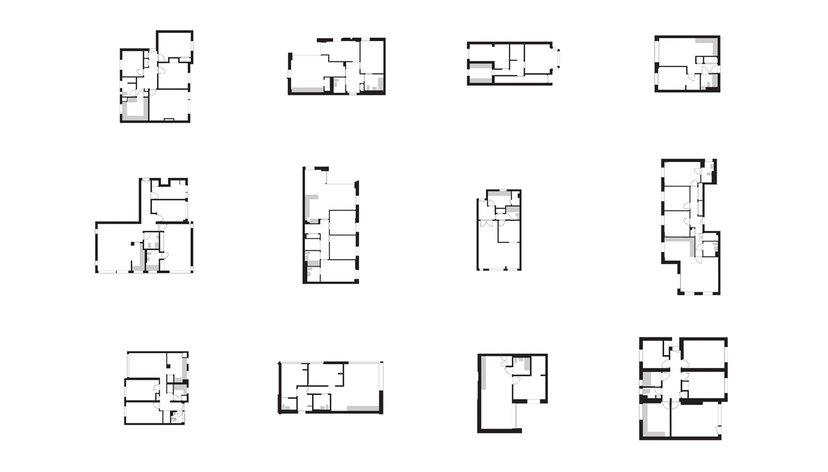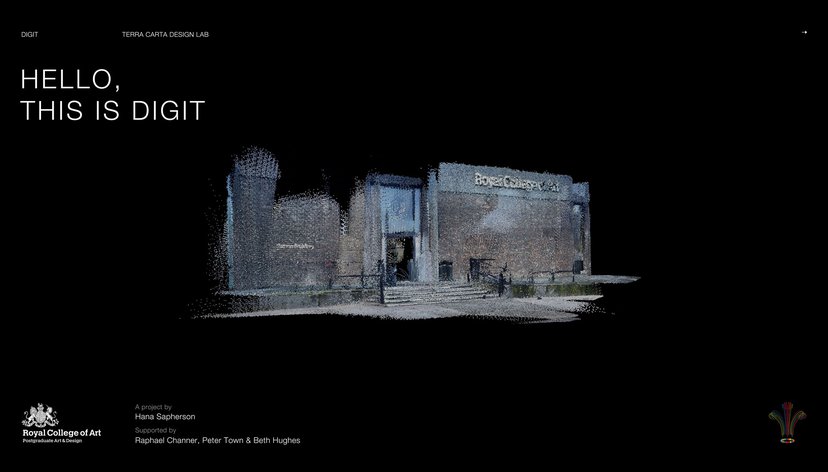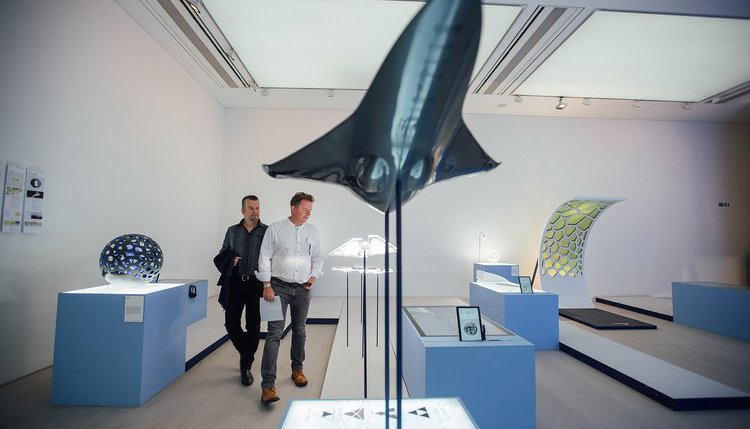
Working with local communities, the project explores challenges and responses to climate change in UK coastal areas.

At a glance
- Study of ‘managed retreat’ in the UK, where there is currently no strategy or mechanism to move people and assets out of harm’s way from eroding coastlines.
- The design of proactive community participation to capture the individual and collective values and priorities of residents in Hull, Withernsea and Hornsea affected by coastal change
- Understanding how loss appears and is processed in a specific community, how change is accepted, and what opportunities managed retreat can bring.
- Exploring how managed retreat strategies centred on recording, communicating, and sharing information on loss, change, and social values can support community empowerment and prioritisation around preservation.
Key details
Gallery
More information
The challenge
By 2050, the current protection of around a third of England’s shoreline with a hold-the-line coastal management policy is expected to be financially unviable or unsustainable due to climate change accelerating sea-level rise and coastal erosion. The use of hard engineering to protect the coastline will have to be increasingly replaced by a managed erosion and realignment of the shoreline: a managed retreat. This will potentially provide sustainable long-term solutions to coastal management and help restore coastal ecosystems. However, this will also put up to 160,000 properties in England at immediate risk from flooding. This will have a significant impact on already deprived coastal communities where land costs and economic activities are low, and to a lesser extent on coastal cities and towns.
This project engages with the question of loss and damage from a social and cultural perspective related to the protection, relocation or preservation of tangible cultural heritage and spaces of social and historical significance to local coastal communities.
The story of retreat as a climate response is just beginning. Retreat is compelling because it brings together many aspects of how societies work, what individuals are trying to achieve, and what it takes to ensure preparedness and resilience in a changing climate. Retreat is an adaptive option at the intersection of changing disaster risk, market forces, societal investments, and community wellbeing.
What we did
The project differentiates itself from other research into managed retreat by foregrounding qualitative understandings of community perceptions and value, centering the social and cultural concerns of residents.
To achieve this, the design of public community engagement formats and public communication strategies sought to ensure the public is meaningfully included in conversations about the future of living on the shoreline.
This included community walks and workshops to capture individual experiences and community opinions at large of residents from the Holderness Coast, East Riding of Yorkshire.
The findings and analysis of the engagement sessions were structured to formulate guidance for engagement work with coastal communities when discussing coastal management and change.
The project examined what opportunities processes of communicating, recording, and preservation might offer in the context of sea-level rise, as well as the role of creative and design practices within this.
This qualitative work was supported by a survey and analysis of existing managed retreat literature and case study examples of retreat to critique how managed retreat is presently approached.
Outputs
Participation in "The ocean speaks. New ecologies and new economies of the seas" exhibition at Disseny Hub Barcelona, 2024/25
Team
Get in touch
For further information please contact the RCA School of Architectur
soa-admins@rca.ac.uk

